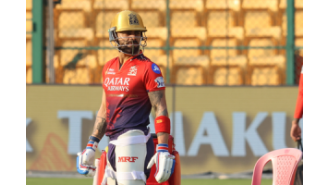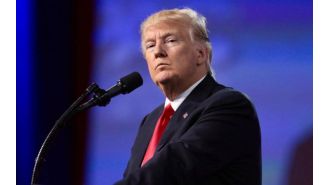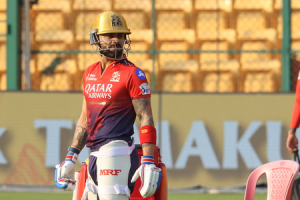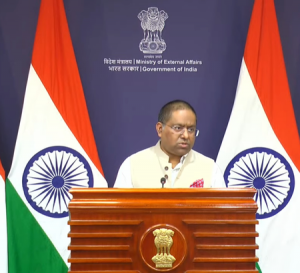Parliament's decision has been met with approval.

On December 11, the Hon'ble Supreme Court of India delivered a historic judgment on the abrogation of Articles 370 and 35. Through its judgment, the Court has upheld the sovereignty and integrity of India, something that is cherished by every Indian. The Supreme Court rightly observed that the decision taken on August 5, 2019 was done with the purpose of enhancing Constitutional integration and not disintegration.
The Court has also recognised the fact that Article 370 was not permanent in nature. Jammu, Kashmir and Ladakh are places of breathtaking landscapes, serene valleys and majestic mountains that have captivated the hearts of poets, artists and adventurers for generations. It is a place where the sublime meets the extraordinary, where the Himalayas reach for the sky, and where the pristine waters of its lakes and rivers mirror the heavens.
However, for the last seven decades, these places have witnessed the worst form of violence and instability, something which the wonderful people never deserved. Unfortunately, due to centuries of colonisation, most notably economic and mental subjugation, we became a confused society of sorts. Rather than taking a clear position on very basic things, we allowed duality, leading to confusion.
This mindset meant that Jammu and Kashmir became a big victim of such a confused society, and at the time of India's independence, we had a choice of making a fresh start for national integration. Instead, we decided to continue with the confused society approach even if it meant ignoring the long-term national interests. I have had the opportunity of being connected with the Jammu and Kashmir Andolan from a very early part of my life.
I belong to an ideological framework where Jammu and Kashmir was not merely a political issue, but it was about addressing the aspirations of society. Dr Syama Prasad Mookerjee held an important portfolio in the Nehru Cabinet and could have remained in government for a long time. Yet, he quit the Cabinet over the Kashmir issue and preferred the tough road ahead, even if it meant paying with his life.
His efforts and sacrifice led to crores of Indians becoming emotionally attached with the Kashmir issue. Years later, Atal Ji, at a public meeting in Srinagar gave the powerful message of 'Insaniyat', 'Jamhooriyat' and ‘Kashmiriyat’, which has also always been a source of great inspiration. It was always my firm belief that what had happened in Jammu and Kashmir was a great betrayal- to our nation and to the people living there.
It was also my strong desire to do whatever I can to remove this injustice done to the people. I have always wanted to work to alleviate the suffering of the people of Jammu and Kashmir. The impact of Articles 370 and 35 was like major obstacles.
It seemed like an unbreakable wall and the sufferers were the poor and downtrodden. Articles 370 and 35 ensured that the people of Jammu and Kashmir never got the rights and development that the rest of their fellow Indians got. Due to these Articles, a distance was created between people belonging to the same nation.
This meant that many people from our nation who wanted to work to solve the problems of Jammu and Kashmir were unable to do so even if they clearly felt the pain of the people there. As a Karyakarta who has seen the issue closely over the last several decades, I had a nuanced understanding of the specifics and the complexities of the issue. Yet, I was crystal clear about one thing — that the people of Jammu and Kashmir want development and they want to contribute to the development of India based on their strengths and skills.
They also want a better quality of life for their children, a life free from violence and uncertainty. Thus, while serving the people of Jammu and Kashmir, we gave primacy to three pillars — understanding of the citizens' concerns, building trust through supportive actions, and prioritising development, development and more development. In 2014, just after we assumed office, deadly floods struck Jammu and Kashmir, with a lot of damage in the Kashmir valley.
In September 2014, I went to Srinagar to assess the situation and also announced Rs 1,000 crore as a special assistance for rehabilitation, signalling our government's commitment to supporting the people during crises. I had the opportunity to meet people from different walks of life and there was one common thread in these interactions- the people not only wanted development but they also wanted freedom from the rampant corruption prevailing for decades. The same year, I decided not to mark Diwali in remembrance of those we lost in Jammu and Kashmir.
I also decided to be in Jammu and Kashmir on Diwali day, to show my commitment to the people and their cause. On December 11, the Hon’ble Supreme Court of India delivered a historic judgment on the abrogation of Articles 370 and 35. This decision was made with the purpose of enhancing Constitutional integration and not disintegration, and the Court rightly observed that this Article was not permanent in nature.
The breathtaking landscapes, serene valleys, and majestic mountains of Jammu, Kashmir and Ladakh have captivated the hearts of many for generations. Unfortunately, this place has witnessed the worst form of violence and instability for the last seven decades, something which the wonderful people never deserved. We can trace the issues faced in Jammu and Kashmir to centuries of colonisation, most notably economic and mental subjugation.
This led to duality and confusion, instead of taking a clear position on very basic things. As a result, the people of Jammu and Kashmir never got the rights and development that the rest of their fellow Indians got. I have had the opportunity of being connected with the Jammu and Kashmir Andolan from a very early part of my life.
I belong to an ideological framework where Jammu and Kashmir was not merely a political issue, but it was about addressing the aspirations of society. The efforts and sacrifice of those like Dr Syama Prasad Mookerjee and Atal Ji have made the Kashmir issue something that crores of Indians are emotionally attached to. It was always my firm belief that Articles 370 and 35 were like major obstacles, and that it was a great betrayal to our nation and to the people living there.
I have always wanted to work to alleviate the suffering of the people of Jammu and Kashmir, so when we assumed office in 2014 I decided to make it a priority. I visited Srinagar to assess the situation and announced Rs 1,000 crore as a special assistance for rehabilitation, signalling our government's commitment to supporting the people during crises. The people wanted development and freedom from the rampant corruption prevailing for decades.
As a mark of respect for those we lost in Jammu and Kashmir, I decided not to celebrate Diwali but instead be in Jammu and Kashmir on that day. Now, with the Supreme Court's historic decision to abrogate Articles 370 and 35, I am sure the people of Jammu and Kashmir will be able to finally get the rights and development they deserve. I am confident that this will bring us one step closer to national integration.










